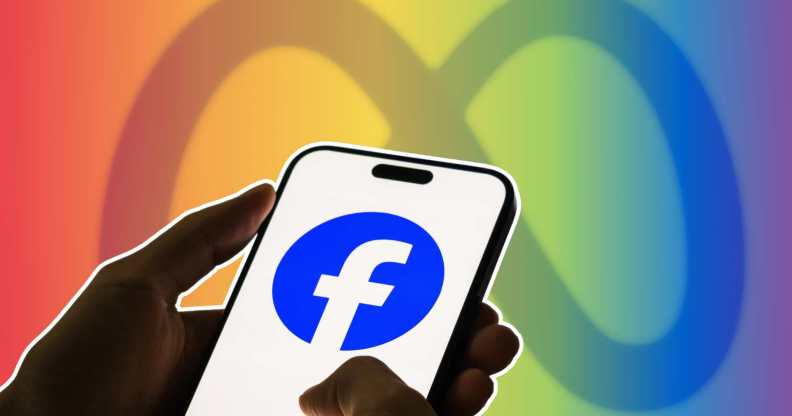What does Meta’s ‘move to masculinity’ really mean for LGBTQ+ workers?

Meta is among to big-name US corporations to renege on their commitment to diversity and inclusion. (Canva/Cheng Xin/Getty Images)
Hot on the heels of Elon Musk and Donald Trump denouncing the “woke mind virus”, Meta founder Mark Zuckerberg is throwing his two cents in.
Speaking to podcaster Joe Rogan, Zuckerberg said that he felt corporate culture had become too “feminine”, that it was suppressing its “masculine energy” and that the workplace had essentially become “neutered” as a result.
This comes after the organisation announced it was ending its third-party fact-checking programme, which has been in place since 2016.
5 jobs to apply for in DE&I-friendly companies across the UK
- Principal Engineer – Product Safety, BAE Systems, Rochester
- Branding & Trade Mark Associate – Trade Mark Attorney or Solicitor, Sheridans, London Area
- Recruitment Coordinator (French speaking) 8 Month FTC, Korn Ferry, United Kingdom
- Store Manager – Teesside, Aldi UK, Stockton-On-Tees
- Head of Sales – Fashion Division, Liberty, London Area
According to Pavel Shynkarenko, founder of contract worker software provider Mellow, there are a number of things at play within Meta.
“What Zuckerberg is announcing right now is a result of both internal and external reasons. On one hand, it’s politics — both US and international. On the other hand, it’s their internal business processes.
“For example, they’re heavily cutting departments related to DEI (diversity, equity, and inclusion). And honestly, it’s a tough time for people working on inclusion in the workplace right now. There’s a lot of scrutiny on these topics, and big tech is actively downsizing those teams.
“The broader push for efficiency, driven by higher costs, means tech giants are now focusing more on performance. Employees need to clearly demonstrate their value, as decisions on retention are becoming stricter.”
The disappearance of DE&I
The Trump administration is actively suppressing DE&I, and Donald Trump has issued an executive order to ban diversity, equity and inclusion in the government. He has also issued an executive order that only recognises two sexes – male and female.
An internal memo recently instructed that all “programs that use taxpayer money to promote gender ideology” should end and related information should be disabled from government websites.
As a result, all references to LGBTQ+ health information have been deleted. This includes data published by the Office of Disease Prevention and Health Promotion around progress that has been made to reduce the bullying of transgender students, and data around gay high school students using illegal drugs.
US companies are also following suit. Target announced it would end its DE&I programmes just days after Trump’s inauguration, citing the “evolving external landscape”. In recent months, McDonald’ and Lowe’s also rolled back on their DE&I programmes.
Additionally, Google’s parent company Alphabet removed language surrounding DE&I in its 10-K report to the Securities and Exchange Commission—in its 2023 report it had said that “we are committed to making diversity, equity, and inclusion part of everything we do and to growing a workforce that is representative of the users we serve.” Its Chief Diversity Officer Melonie Parker now has a new job title and is VP, People Operations.
What’s next for workers?
Here in the UK, feeling isolated and unsupported is nothing new within the LGBTQ+ community. Data from Randstad’s 2024 Workmonitor Pulse Survey shows that 47 per cent of LGBTQ+ workers have experienced discrimination or prejudice at work, and 25 per cent don’t feel comfortable discussing their sexuality or gender identity at work.
This is supported by data compiled by EY which found that only seven per cent of companies in Europe are building a real culture of inclusivity and less than 50 per cent of surveyed organisations have implemented measures for cultural, LGBTQIA+, and socioeconomic diversities.
And while there’s no guarantee that challenging the Trump administration will have any bearing, several organisations including GLAD Law and the National Center For Lesbian Rights (NCLR) have begun the legal process of challenging the executive order blocking transgender service members from serving.
Ultimately, it remains to be seen how the ripple effect will play out. If you feel as though your employer isn’t supporting you or its values don’t align with your own, a new job in a more inclusive company could be the answer.
Browse thousands of job opportunities today via the PinkNews Job Board
How did this story make you feel?

